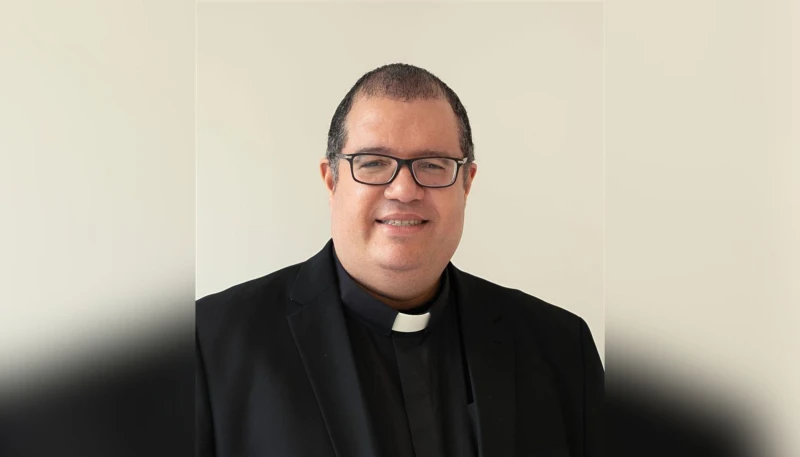

Palm Beach Bishop-designate Manuel de Jesus Rodriguez. / Credit: Photo courtesy of Diocese of Palm Beach
CNA Staff, Dec 19, 2025 / 07:30 am (CNA).
The Holy See said on Dec. 19 that Pope Leo XIV had made two new episcopal appointments in the United States, with the Vatican announcing a new bishop for the Diocese of Palm Beach, Florida, as well as an auxiliary bishop for the Diocese of Phoenix.
Father Manuel de Jesus Rodriguez will lead the Palm Beach Diocese after the resignation of Bishop Gerald Barbarito, the Vatican said. At 75, Barbarito has reached the customary age at which bishops retire.
Bishop-designate Rodriguez is currently a priest in the Diocese of Brooklyn, where he serves at Our Lady of Sorrows Church in Queens.
Born Jan. 15, 1974, in the Dominican Republic, Rodriguez studied at the Pontifical University Madre y Maestra in that country, receiving philosophy and law degrees there before obtaining several other degrees and certificates, including a doctorate in legal studies from the Pontifical Salesian University in Rome and a licentiate in canon law from The Catholic University of America.
Admitted to the Salesians of Don Bosco in 1993, he made his final profession to that religious order in 2002 and was ordained on July 3, 2004. He was incardinated in the Diocese of Brooklyn in 2012.
Rodriguez became a U.S. citizen in 2018. He has served multiple roles in Brooklyn, including as pastor and administrator of several churches as well as defender of the bond at the diocesan tribunal. The bishop-designate speaks English, Spanish, Italian, and French.
Outgoing Palm Beach Bishop Barbarito said in a Dec. 19 statement that the diocese will be ”greatly blessed” by Rodriguez’s ministry and that he has “shown himself to be a deeply spiritual and exceptional priest.”
Vicar for clergy appointed auxiliary bishop in Phoenix
The Holy See also announced on Dec. 19 that Pope Leo XIV has appointed Monsignor Peter Dai Bui as an auxiliary bishop of the Diocese of Phoenix.
Bishop-designate Bui is currently the diocesan vicar for clergy for the Phoenix Diocese. A native of Vietnam, he entered the Legion of Christ novitiate in 1989 and made his first profession in 1991. He attended the Pontifical Athenaeum in Rome, where he earned degrees in philosophy and theology and a licentiate in philosophy.
He was ultimately ordained for the Legionaries of Christ on Dec. 24, 2003.
Bui served for several years as the chaplain of a private Catholic school in Venezuela, where he organized international mission trips. Incardinated in the Phoenix Diocese in 2009, he has served as pastor at multiple parishes and since 2022 as the vicar for clergy.
The bishop-designate speaks English, Vietnamese, Spanish, Italian, and German.
Bui said in a Dec. 19 statement that he was “honestly in shock” when Apostolic Nuncio Cardinal Christophe Pierre called him with the news.
“I even forgot he couldn’t see me nodding through the phone!” he joked. He expressed a “profound gratitude to God” for the appointment.
“I just want to be a good priest, now called to serve in a new way,” he said.
Phoenix Bishop John Dolan, meanwhile, said he was “deeply grateful” to the pope for the appointment.
“As one of the largest and most rapidly growing dioceses in the nation, Phoenix faces increasing pastoral and administrative complexity, and Bishop-elect Bui’s experience in governance, his deep care for priests, and his commitment to accompaniment will be invaluable,” the bishop said.
Read More



